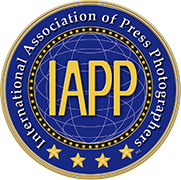In today’s connected and media-driven world, journalists and photojournalists need robust professional networks to succeed. A respected press association such as the International Association of Press Photographers (IAPP) plays a central role in supporting and promoting the careers of its members. However, the rise of unscrupulous organizations posing as press associations has created challenges for journalists seeking real support and credibility. Understanding the differences between legitimate organizations and fraudulent companies is crucial to protecting one’s reputation and advancing in the field of journalism.
What makes a reputable press association?
A good press association is characterized by the fact that it is committed to the professional development of its members and adheres to ethical standards. These organizations offer tangible benefits such as global recognition, networking opportunities, and access to industry resources, while maintaining transparency and trustworthiness. Reputable organizations place a high value on the success of their members and ensure that they have the tools, knowledge, and support to succeed in their careers.
Worldwide recognition is an essential characteristic of a professional press association. The membership and credentials of such organizations are widely recognized by media institutions, event organizers, and government agencies. This recognition can open doors that would otherwise remain closed and allow journalists to access exclusive events and strengthen their credibility. Transparent fee structures and clearly defined services are another sign of a reputable association that ensures that members know exactly what they are paying for.
In addition, professional associations such as IAPP foster a supportive community where members can share ideas, collaborate and grow together. These networks are invaluable for gaining insights, sharing knowledge and building lasting professional relationships. Educational resources such as workshops, webinars, and training programs further differentiate these organizations, allowing members to stay up-to-date on industry trends and best practices.
Characteristics of false friends in business
Fake press associations, on the other hand, are driven more by profit than by a genuine desire to support journalists. These organizations often disguise themselves as legitimate organizations and make lofty promises to attract unsuspecting individuals. However, the lack of credibility and failure to deliver value quickly becomes apparent.
An important warning flag is the lack of recognition by the industry. Credentials issued by fraudulent organizations are rarely recognized by media, organizers, or official institutions. Journalists who rely on such references are often rejected when trying to gain access to events or interviews, which undermines their credibility and damages their professional reputation.
False associations also tend to use aggressive marketing tactics and promise unrealistic benefits such as guaranteed access to all events worldwide or instant career advancement. These claims are often coupled with exorbitant membership fees that bring little in return. Unlike reputable organizations, they don’t offer networking opportunities, educational resources, and tangible support for their members.
A decisive difference lies in transparency. False friends often disguise their business operations and give vague or misleading information about their mission, benefits, and fee structures. They can escape public scrutiny and fail to provide a clear understanding of what members can expect. This lack of transparency is in stark contrast to the open and honest communication maintained by reputable organizations.
After all, fraudulent organizations lack an ethical basis. While professional associations value journalistic integrity and adhere to strict ethical standards, false companies disregard these principles. This not only damages the credibility of its members, but also undermines the trustworthiness of the journalism industry as a whole.

Amateurs vs. Professionals: Understanding the Differences
An important distinction in the journalist and press association landscape is the difference between amateurs and professionals. This distinction has a significant impact on how journalists and photojournalists interact with press associations such as the IAPP and how they can succeed in this area.
Amateurs: Enthusiasts without full commitment
Amateurs, in this context, refer to people who engage in journalism or photojournalism as a hobby or side hustle, rather than as a full-time career. Amateurs may have a passion for storytelling and photography, but they often lack the professional training, experience, and ethical foundation that separates them from full-fledged journalists.
1. Restricted access
Amateurs usually have difficulty gaining access to major events or getting interviews with key figures. Your references may not carry the same weight as those of professional press associations, resulting in missed opportunities.
2. Inconsistent quality
Amateur journalists and photographers often produce work of varying quality. While some may be promising, they may lack the technical skills or editorial experience required to produce consistently high-caliber work.
3. Lack of industry connections
Amateurs may not have the network or institutional support needed to advance in the industry. Without connections to editors, publications, or peers, it can be difficult for them to gain a foothold in the competitive world of journalism.
4. Ethical and legal gaps
Amateurs may not be fully aware of journalistic ethics or the legal challenges that arise from reporting. This can lead to missteps, such as failing to obtain the right permissions, misreporting facts, or violating copyright law.

Professionals: Competent experts in their field
In contrast, professionals are individuals who are dedicated to journalism as a full-time career. They have the necessary education, training, and experience to navigate the complexities of the industry. Professional press associations such as the IAPP support journalists in improving their craft and maintaining high standards of practice.
1. Extensive access
Professionals enjoy broad recognition and respect in the industry. Their credentials, supported by organizations like IAPP, open doors to exclusive events, interviews, and opportunities that amateurs often don’t have access to.
2. Consistent, high-quality work
Professional journalists and photojournalists produce work of consistently high quality. They have honed their craft through years of practice, which allows them to tell captivating stories, capture powerful images, and maintain the trust of their audience.
3. Strong industry connections
As part of a respected press association, professionals gain access to a vast network of contacts, including editors, publications, fellow journalists, and potential sources. These connections help them advance their careers and collaborate on larger projects.
4. Ethical integrity
Professionals adhere to a strict code of ethics and ensure that their work is correct, fair, and responsible. This commitment to ethical reporting not only strengthens its credibility, but also the trustworthiness of the journalism industry as a whole.

What sets IAPP apart
The International Association of Press Photographers (IAPP) is an example of the qualities of a trusted and reliable press association. Global recognition ensures that members get access to prestigious events, restricted areas, and high-profile interviews. This recognition is based on the IAPP’s long-standing reputation and partnerships with prestigious institutions.
Ethical commitment is another cornerstone of IAPP’s business activities. The organization enforces strict policies and ensures that its members maintain the highest standards of journalism and photojournalism. This commitment to ethics not only strengthens the credibility of individual members, but also contributes to the overall integrity of the journalistic profession.
The supporting community of the IAPP distinguishes them from fraudulent organizations. Members benefit from a vibrant network of professionals who share knowledge, collaborate on projects, and provide mentorship. These connections are invaluable for professional growth and overcoming challenges in an increasingly complex industry.
The IAPP also invests in the continuous development of its members through training programs, workshops and seminars. These resources cover a wide range of topics, from investigative journalism techniques to multimedia storytelling and digital content optimization. This focus on education ensures that members stay ahead of industry trends and maintain their competitive edge.
Why the difference matters
The distinction between reputable press associations and false friends is not just academic in nature – it has real implications for a journalist’s career. Working with a fraudulent organization can lead to financial losses, reputational damage, and missed opportunities. It can also affect a journalist’s ability to deliver credible and impactful stories, which undermines the trust of audiences and stakeholders.
Choosing a reputable organization like IAPP, on the other hand, provides journalists with the resources, support, and recognition they need to succeed. It ensures that they are part of a professional network that values integrity, promotes growth, and helps improve the journalism industry.

Conclusion: Why IAPP is the right choice
In a landscape full of opportunities and pitfalls, the International Association of Press Photographers (IAPP) stands as a beacon of reliability and professionalism. For journalists and photojournalists looking to advance their careers, IAPP provides the tools, resources, and support needed to excel. By choosing a reputable organization like the IAPP, members not only increase their credibility, but also join a global community that is committed to ethical and impactful journalism.
Understanding the difference between legitimate press associations and fraudulent companies is essential to securing one’s career. With the IAPP, journalists can confidently navigate the complexities of modern reporting, knowing that they are supported by an organization that values their success and upholds the highest standards of their profession.

